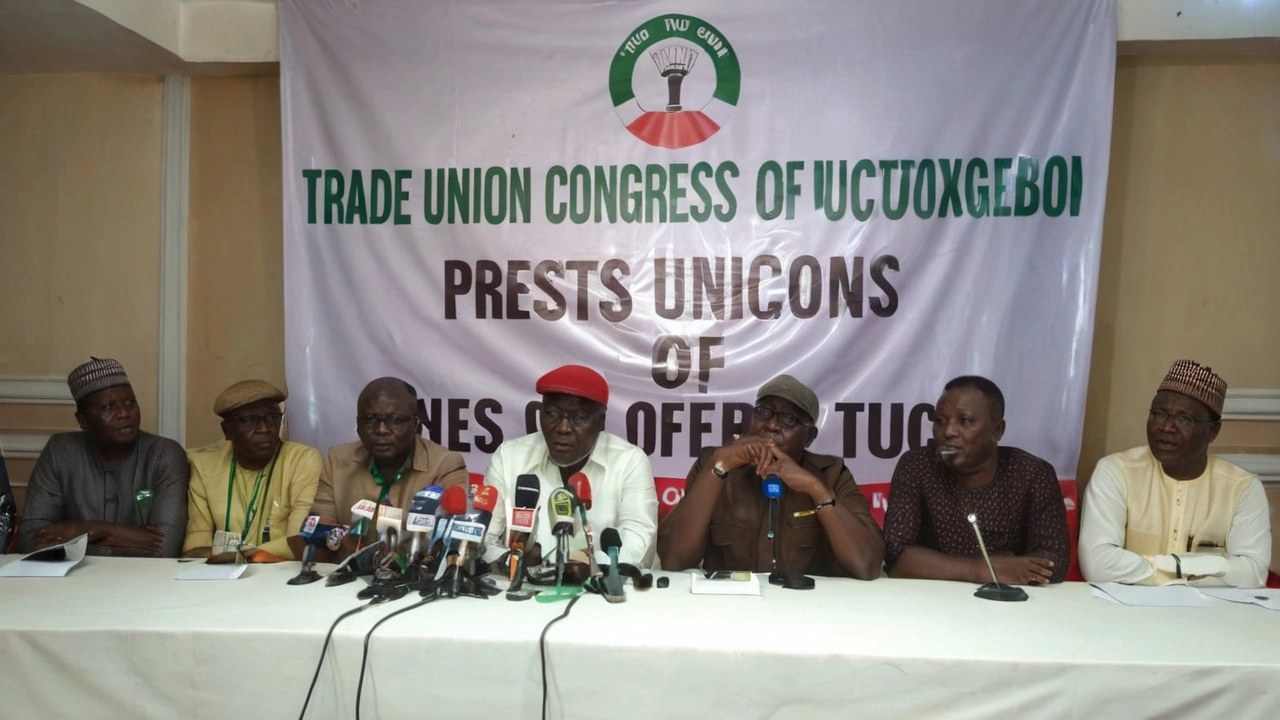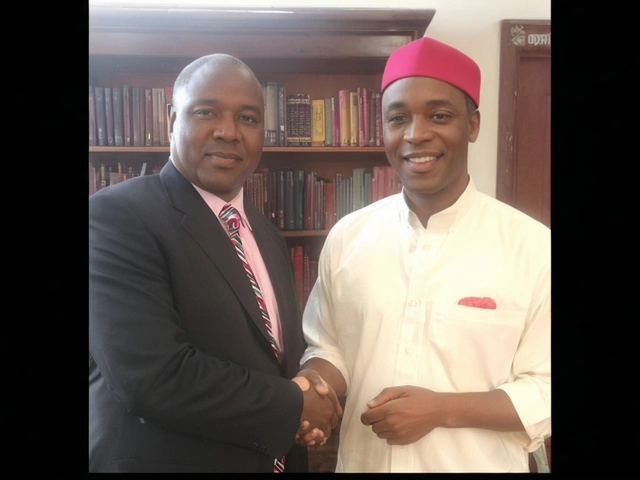Nigeria's President Tinubu Implements New Minimum Wage Amid Growing Economic Challenges
In a dynamic shift affecting millions of workers, Nigeria's President Bola Tinubu has enacted a new minimum wage law, setting the standard monthly minimum wage at 70,000 naira, approximately equivalent to $44. This legislation materialized after extensive and often contentious negotiations between the government and the nation’s leading labor unions. Initially, labor unions demanded a minimum wage far exceeding the approved amount, pushing for ₦615,000 which was then reduced to ₦500,000 and finally down to ₦250,000 before settling at the current figure.
The journey to this new wage law reveals much about the economic predicament and aspirations of Nigeria’s workforce. The significant climb-down from labor unions' initial demands underscores the financial hardships gripping the country. Nigeria has been navigating a tumultuous economic landscape characterized by escalating costs of living and soaring inflation rates, which have complicated the task of meeting workers' employment and livelihood expectations.
President Tinubu’s administration justified this lower wage, citing severe economic constraints. While the labor unions found this reduction hard to swallow, they were mollified by the additional benefits offered and a commitment from President Tinubu to review the national minimum wage legislation every three years. This review cycle offers a glimmer of hope for future wage adjustments aligned with economic conditions and inflationary trends.
Economic Realities and Pressures
One cannot ignore the backdrop of economic adversity that frames this development. The removal of fuel subsidies and the drive to standardize exchange rates have led to a dramatic rise in fuel prices, further fueling the inflation rate. Presently, Nigeria grapples with an inflation rate of 34.1%, the highest in nearly three decades. For an economy tethered to oil revenues, these moves are seen as necessary adjustments, yet they also exacerbate cost-of-living pressures on everyday Nigerians.
State governments are also mandated to implement this new minimum wage once it receives legislative backing from federal lawmakers. While this directive is crucial to ensure uniformity across the country, its implementation presents a myriad of logistical and financial challenges. The states, varying greatly in their economic capacities, will have to navigate these changes cautiously to avoid fiscal imbalances while ensuring compliance with the new wage standards.
Sustainable Future and Implementation
President Tinubu's approach to secure this wage agreement can be seen as a move to prevent widespread labor unrest. Nigeria has a history of labor strikes, and amidst the current economic uncertainties, the threat of industrial action loomed large. By securing this agreement, the government has, at least temporarily, staved off potential strikes that could have further strained the economy.
For the average Nigerian worker, this new minimum wage brings mixed feelings. On one hand, any wage increment is a relief amidst the spiraling costs of living. On the other hand, the amount falls significantly short of the living wage standards advocated by labor unions, revealing a stark mismatch between economic realities and workers’ needs. The accompanying benefits proposed by the government include measures to cushion the impact of inflation, though these benefits have yet to be clearly outlined and implemented.

Future Prospects and Reviews
Looking ahead, the promise of periodic reviews every three years is a critical aspect of this new law. It offers a structured pathway to potentially align the minimum wage with prevailing economic conditions. For many, this promise holds potential. It implies that the government acknowledges the dynamic nature of economic conditions and is willing to make adjustments in response to them.
However, the effectiveness of this periodic review system hinges on the government's commitment to a transparent and inclusive process. Labor unions are likely to push for closer involvement to ensure that future wage adjustments are reflective of actual economic changes rather than superficial metrics. The benchmarks for these reviews will need careful planning and execution to ensure fairness and equity.
Conclusion
This new wage law, while far from perfect, represents a significant milestone in Nigeria's labor landscape. It underscores the ongoing struggle between economic limitations and the pursuit of equitable labor standards. As the nation moves forward, the balance between fiscal prudence and worker welfare will continue to be a critical focal point. For now, this wage increment provides a baseline of relief for many and a starting point for future negotiations and improvements.
In the end, the success of this new minimum wage law will be measured not just by its immediate impact, but by how well the government and labor unions work together to address the economic complexities that affect every Nigerian worker. The road ahead is laden with challenges, but it is also paved with the possibility of achieving a more balanced and fair working environment. This is the moment where policy meets perseverance and where the resilience of the Nigerian spirit is once again put to the test.






